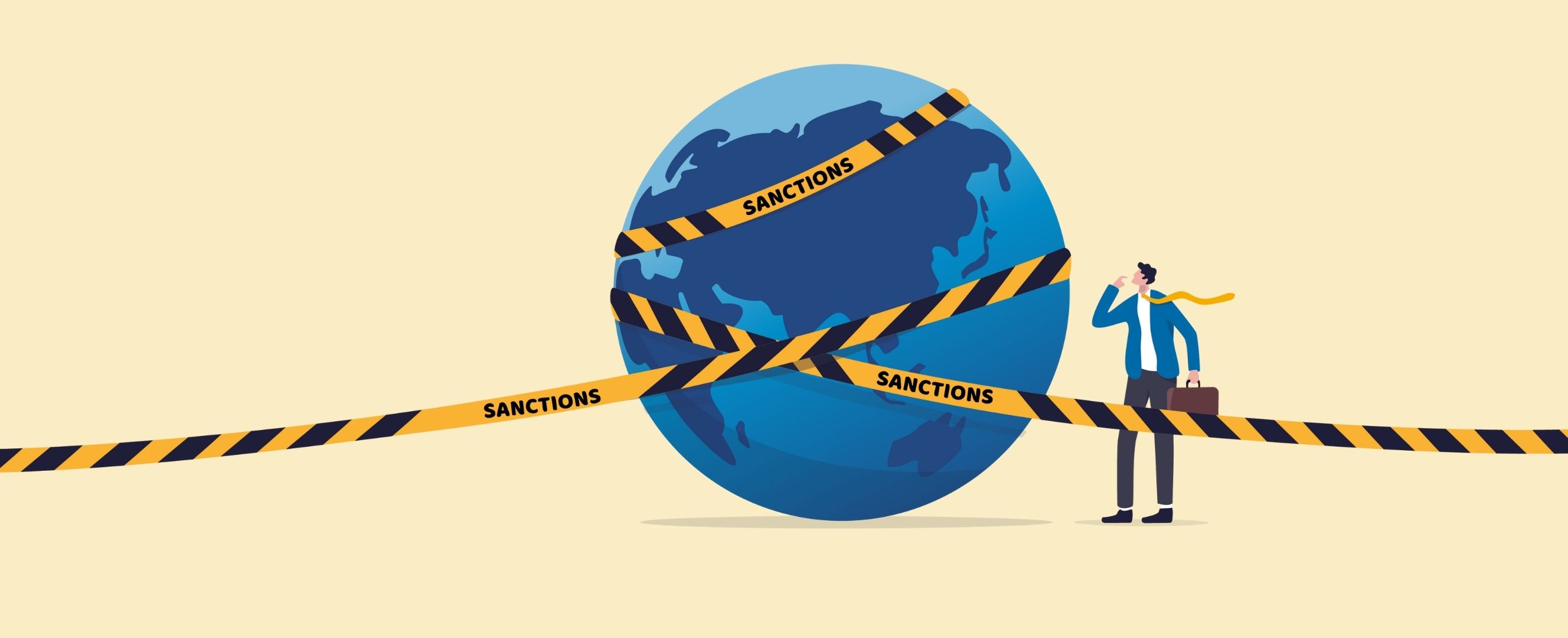
¶ Sanctions
¶ Background
¶ Ancient Sanctions
The first recorded use of sanctions was in 432 BC, when the Athenian Empire banned traders from Megara, strangling the rival city-state’s economy. For the next 2,375 years humans would weaponize trade for political and military reasons.
Economic sanctions are usually imposed by a larger country upon a smaller country: either the smaller is a perceived threat to the larger or because the larger desires political change in the smaller.
Aggressors refer to sanctions as moral alternatives to war.
¶ Modern Sanctions
The most recent incarnation of sanctions were born in 1945 with the creation of the United Nations. Since then, it has enacted over 20 sanction measures.
As anyone who knows the UN knows, the real action was with the US; the Americans sanctioned 104 during the same period.
When sanctions are enacted, politicians give grandiose speeches about justice, human rights and morality.
They almost never seem to mention the effects.
So, let's take a world tour and take a look at the effects of modern Western sanctions:
¶ North Korea 🇰🇵
The first significant sanctions began in the 1950s in reaction to the Korean War. As North Korea grew more isolated, it focused more feverishly on building nuclear weapons. To stop the nukes and to dethrone the Kim family, the US turned to sanctions.
The results speak for themselves: the Kim family has an uncontested hold on political power. North Korea has successfully built nuclear weapons.
And the people bear ALL the cost; best highlighted by the North Korean famine, which took 15% of North Koreans.
In the 1990s.
¶ Cuba 🇨🇺
In 1962, the US enacted an embargo against Cuba, blocking almost all trade (including food and medicine) in an attempt to remove Fidel Castro from power. Castro survived the sanctions and ruled until 2008, when his brother took over.
A 2015 report in estimated that the embargo had cost the Cuban economy $1.1T in the 55 years since its inception.
The explicit purpose of the embargo was to "to decrease wages, to bring about hunger, desperation and overthrow of government."
Well... they got 3 out of 4.
¶ Iran 🇮🇷
The first sanctions against Iran were imposed in 1979 over the Hostage Crisis. The were reimposed in 1981, and expanded in 1995 & 2006. Originally focused on regime change, the Iranian sanctions have shifted to focus on its nuclear program.
The Iranian government has been scraping by by replacing imports with domestic goods and banning luxury imports, but the people suffer.
The most heartbreaking impact: medical supplies. Iran has experienced huge shortages in for equipment needed to treat many illness.
¶ Afghanistan 🇦🇫
¶ Syria 🇸🇾
Syria has been on the US State Sponsors of Terrorism list since 1979, but in 2004 a much more serious set of sanctions were imposed. The purpose: stop the repression of the Syrian people and remove Bashar al-Assad from power.
The Syrian Civil War has ragged for more than 10 years, leaving 6MM people internally displaced and over 13MM people in need of humanitarian assistance. Most Syrian people are therefore deliberately left unsupported.
al-Assad still rules with absolute power in Damascus.
¶ Venezuela 🇻🇪
In 2018, President Nicolás Maduro subverted the Venezuelan electoral process and secured a second term in power. Citing the sham election and the violent repression of protests in 2014 & 2017, the US and friends applied sanctions.
Americans weren't worried... an April 2019 report noted that early sanctions didn't target the Venezuelan economy in any way. Washington Post: "the deprivation long predates recently imposed US sanctions."
Venezuelans... they are just trying to get food in their mouths.
¶ Russia 🇷🇺
In 2014, Russia invaded eastern Ukraine and began an 8-year, low-boil military conflict. In 2022, the conflict expanded significantly when Russia committed to a full scale invasion of Ukraine. And so, the west began sanctioning.
The effects on the war: questionable, at best.
The effects on the Russian people: cataclysm.
According to the IMF in April 11, 2022 country, the Russian economy is projected to see a -8.5% decrease in its real GDP in 2022, with an inflation of 21.3% in that same year.
¶ Too Big to Sanction
Russia stands out from the rest of these countries; it is far larger and more central to the Western economic system. As a result, the West (but particularly Europe) is forced to experience significantly more of the collateral damage than ever before.
But this isn't the first time the West is interested in deploying sanctions against countries that cannot be bullied. When the target is too big and powerful, the scope narrows.
The West will happily individually target a CCP member in China or a Defense Minister of Turkey if it's diplomatically prudent.
¶ The Legacy of Sanctions
At this point, I am beginning to wonder what the point of sanctions even are.
At best, they seem a broad cudgel... like fishing with dynamite.
More often, they seem like economic missiles that are easily deflected into innocent civilians.
Offering an explanation as to why sanctions are still imposed, British diplomat Jeremy Greenstock suggests sanctions are popular because "there is nothing else [to do] between words and military action if you want to bring pressure upon a government."
At this point it feels useless to bring up "human dignity," "collateral damage" or "food & water" to politicians, so if I had Mr. Greenstock here I'd respond differently:
"If you abuse your power over the financial system, governments are going to look for alternatives."
In the 2000s, that response would have gotten me laughed out of the room. What alternatives?
In the 2010s, that response would have gotten some worried glances and comments about China.
In the 2020s, 2050s, 3000s and beyond, that response refers to The World Computer.
¶ Resources
Source Material - Twitter Link
Source Material - PDF